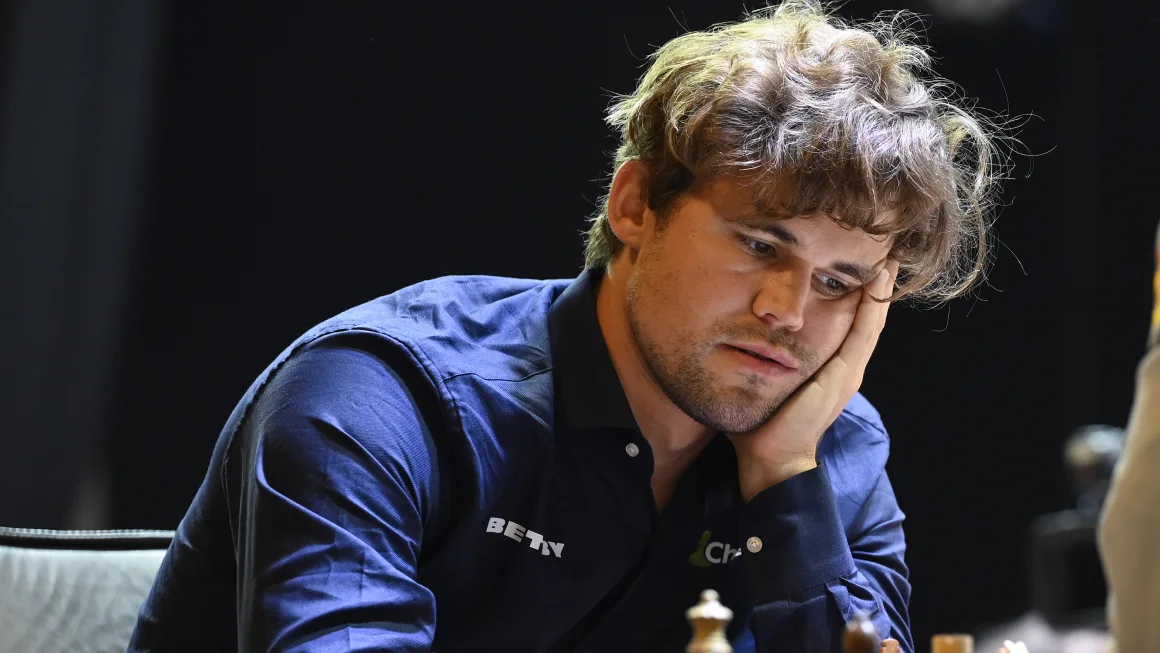Magnus Carlsen, the reigning World Blitz Chess Champion, has withdrawn from the 2024 World Rapid and Blitz Chess Championships in New York following a dispute over the tournament’s dress code. The controversy arose when Carlsen arrived wearing jeans, a violation of the event’s regulations. Despite being fined $200 and instructed to change, Carlsen refused and chose to exit the competition, citing the issue as a matter of principle.
Dress Code Violation and Immediate Consequences
The International Chess Federation (FIDE) enforces a strict dress code to maintain professionalism in its events. Carlsen’s choice to wear jeans directly contravened these rules. When approached by Chief Arbiter Alex Holowczak and asked to change his attire, Carlsen declined, leading to his disqualification from Round 9 of the tournament.
Carlsen’s Response and Critique of FIDE
Carlsen expressed his frustration with FIDE’s decision, stating, “I am pretty tired of FIDE, so I want no more of this. I don’t want anything to do with them.” He emphasized that his refusal to change was based on principle, indicating a deeper dissatisfaction with the organization’s policies.
FIDE’s Position on the Incident
FIDE defended its actions, highlighting that the dress code is well-known and has been in place for years. The organization stated, “The dress code regulations are drafted by members of the FIDE Athletes Commission, which is composed of professional players and experts.” FIDE also noted that other players, including Russian Grandmaster Ian Nepomniachtchi, had complied with the regulations when similarly penalized.
Implications for the Chess Community
This incident has sparked debate within the chess community regarding the rigidity of dress codes and the balance between maintaining professionalism and accommodating individual preferences. Carlsen’s withdrawal from a major championship over such an issue underscores potential tensions between top players and governing bodies like FIDE.
As the chess world reflects on this event, discussions about the relevance and enforcement of dress codes in modern tournaments are likely to continue, potentially influencing future policies and the relationship between players and official organizations.











